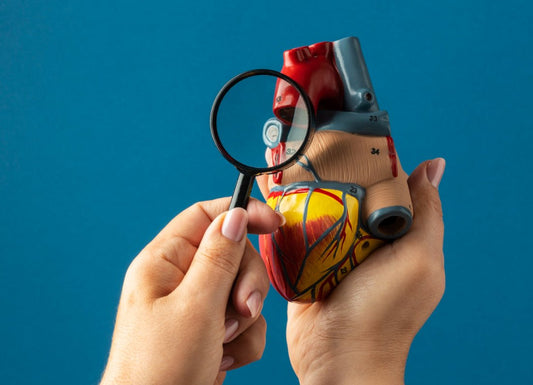What Happens to Your Body After 40 Days With No Alcohol?
 Written By
Blen Shumiye, MD
Written By
Blen Shumiye, MD

Alcohol is one of the most socially accepted substances in the world, yet its effects on the body are profound. While a glass of wine or an occasional beer may seem harmless, research shows that regular alcohol consumption especially in larger amounts can lead to significant health risks over time. On the other hand, abstaining from alcohol for even a short period can deliver impressive health improvements.
So, what happens to your body after 40 days with no alcohol? From improved sleep and better liver health to enhanced mood and weight management, 40 days of sobriety can spark remarkable changes in both body and mind. This article explores the science behind these benefits, helping you understand the short- and long-term rewards of going alcohol-free.
Why 40 Days Matters?
Many people attempt a “Dry January” or similar alcohol-free challenges, often lasting 30 days. But extending that period to 40 days offers an even greater opportunity for the body to reset.
-
Liver recovery: The liver begins repairing itself within days, but extended abstinence allows deeper regeneration.
-
Brain function: Neurochemical balance improves with sustained sobriety, helping reduce anxiety and depression symptoms.
-
Weight and metabolism: Longer breaks from alcohol support more noticeable changes in weight and energy balance.
-
Sustainable habits: After 40 days, new lifestyle patterns are more likely to stick, potentially lowering long-term health risks.
What changes happen week by week when you stop drinking?
Week 1: Immediate Adjustments
In the first 7 days without alcohol, your body starts detoxing.
-
Improved hydration: Alcohol is a diuretic, so stopping consumption helps the body restore normal fluid balance.
-
Better sleep: Many people notice fewer night wakings and deeper sleep within the first week.
-
Reduced heart strain: Blood pressure and heart rate begin to normalize.
-
Withdrawal symptoms (if applicable): Heavy drinkers may experience irritability, headaches, or anxiety in the early days.
Week 2: Energy and Digestion Improve
By day 14, more noticeable improvements appear:
-
Increased energy levels due to stabilized blood sugar.
-
Improved digestion, as alcohol can irritate the stomach lining.
-
Clearer skin thanks to better hydration and reduced inflammation.
Week 3: Mood and Focus Lift
Around day 21, your mental and emotional state shifts:
-
Sharper focus and memory as alcohol-induced brain fog subsides.
-
Stabilized mood with reduced anxiety and irritability.
-
Lower cravings as dopamine regulation improves.
Week 4: Physical Health Gains
By day 28, the physical benefits become undeniable:
-
Noticeable weight loss in many people.
-
Reduced blood pressure and cholesterol levels.
-
Better liver enzyme function.
Week 5–6: Deep Healing at Day 40
At the 40-day mark, the cumulative benefits add up:
-
Liver regeneration is well underway, reducing fatty deposits and inflammation.
-
Improved cardiovascular health with better circulation.
-
Stronger immune system due to decreased inflammation.
-
Mental clarity and emotional balance reach new levels.
What are the health benefits of 40 days without alcohol?

1. Liver Health Improves
The liver is the body’s detox powerhouse, but alcohol is toxic to liver cells. Going 40 days without alcohol allows the liver to:
-
Reduce fat buildup, lowering the risk of fatty liver disease.
-
Repair damaged cells and regenerate healthy tissue.
-
Improve enzyme levels, helping the body metabolize nutrients more efficiently.
Researchers found that one month without alcohol significantly reduces liver fat by 15–20%. By 40 days, these improvements are even more pronounced.
2. Better Heart and Blood Vessel Health
Alcohol increases blood pressure and weakens the heart muscle. After 40 days without alcohol:
-
Blood pressure decreases, reducing strain on arteries.
-
Cholesterol balance improves, lowering heart disease risk.
-
Blood circulation strengthens, promoting oxygen delivery throughout the body.
The American Heart Association reports that even moderate drinking can increase cardiovascular risk, making abstinence especially beneficial.
3. Improved Brain Function
Alcohol disrupts brain communication pathways. After 40 days without alcohol:
-
Cognitive clarity increases, reducing brain fog.
-
Memory improves, as alcohol impairs the hippocampus.
-
Mental health stabilizes, with lower rates of anxiety and depressive symptoms.
Studies have observed recovery in subcortical regions like the putamen and amygdala, and in some cases, prefrontal regions, following abstinence from alcohol, cocaine, and cannabis
4. Stronger Immune System
Alcohol suppresses immune cell activity, leaving the body vulnerable. After 40 days:
-
White blood cells function more effectively, fighting infections faster.
-
Inflammation decreases, lowering autoimmune risks.
-
Healing accelerates, as the body restores immune balance.
5. Weight and Metabolism Benefits
Alcohol is calorie-dense and can derail metabolism. Forty days without alcohol leads to:
-
Calorie savings: A nightly glass of wine adds ~120 calories; skipping it for 40 days saves nearly 5,000 calories.
-
Improved metabolism: Insulin sensitivity and fat-burning improve.
-
Visible weight loss in many participants of alcohol-free challenges.
6. Sleep Quality Restored
Alcohol disrupts the sleep cycle, especially REM sleep. By day 40:
-
Deeper, more restorative sleep becomes routine.
-
Daytime energy levels rise.
-
Mood regulation improves, reducing irritability.
7. Skin and Appearance Enhancements

Alcohol dehydrates the skin and increases inflammation. After 40 days:
-
Skin hydration improves, Fewer breakouts and redness.
-
Fewer breakouts and redness.
-
A healthier glow, as circulation normalizes.
8. Emotional and Mental Resilience
Forty days alcohol-free fosters emotional balance:
-
Lower anxiety levels.
-
Improved resilience to stress.
-
Boosted self-confidence from reaching a health milestone.
Long-Term Benefits if You Continue Beyond 40 Days
While 40 days delivers noticeable benefits, longer abstinence extends protection:
-
Reduced cancer risk (oral, liver, breast, colon).
-
Stronger heart and liver health.
-
Lower risk of alcohol dependence.
-
Increased life expectancy.
The National Institute on Alcohol Abuse and Alcoholism (NIAAA) reports that people who abstain from alcohol entirely have significantly lower risks of chronic illness compared to regular drinkers.
Tips for Succeeding in a 40-Day Alcohol-Free Challenge

-
Set clear goals. Decide whether you’re focused on health, mental clarity, or habit change.
-
Replace the ritual. Try sparkling water, herbal tea, or alcohol-free alternatives.
-
Track your progress. Journaling or using apps can help maintain motivation.
-
Seek support. Involve friends or join a sober challenge community.
-
Celebrate milestones. Reward yourself for weekly progress.
Final Thoughts
What happens to your body after 40 days with no alcohol is nothing short of remarkable. From liver regeneration and improved heart health to better sleep, clearer skin, and sharper mental focus, the benefits extend to nearly every system in your body. Forty days is enough to reset habits, restore balance, and inspire long-term changes in lifestyle.
Whether you’re considering a 40-day challenge to test your discipline or to kickstart a healthier lifestyle, the evidence is clear: your body will thank you.
Ready to take the next step?
If you’re curious about how your liver is doing after your alcohol-free challenge, you don’t have to wait for a doctor’s visit. With Ribbon Checkup’s at-home health urine test, you can track your progress from the comfort of your home and get reliable insights you can act on.
Related Resources
References
Cassata, C. (2023, January 4). Here’s What Happens to Your Body When You Stop Drinking for 30 Days. Healthline; Healthline Media. https://www.healthline.com/health-news/what-happens-to-your-body-when-you-quit-alcohol-for-30-days
Dry January: The health benefits of going 31 days without alcohol | Diet and Nutrition | Prevention | UT Southwestern Medical Center. (2023). Utswmed.org. https://utswmed.org/medblog/no-alcohol-health-benefits/
Fuller, K. (2025, January 4). What Happens In The First Year After You Stop Drinking? Addiction Center. https://www.addictioncenter.com/community/first-year-after-you-stop-drinking/
House, A. (2023). What Happens to Your Body At 40 Days Sober? The Ascension House. https://theascensionhouse.com/what-happens-to-your-body-at-40-days-sober/
Kimball, M. (2023, December 29). Alcohol Free for 40. New Orleans Magazine. https://www.myneworleans.com/alcohol-free-for-40/

Dr. Blen is a seasoned medical writer and General Practitioner with over five years of clinical experience. She blends deep medical expertise with a gift for clear, compassionate communication to create evidence-based content that informs and empowers. Her work spans clinical research, patient education, and health journalism, establishing her as a trusted voice in both professional and public health spheres.



